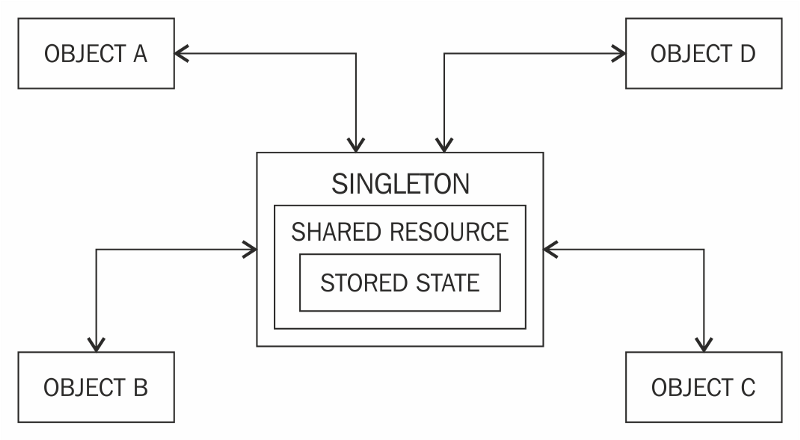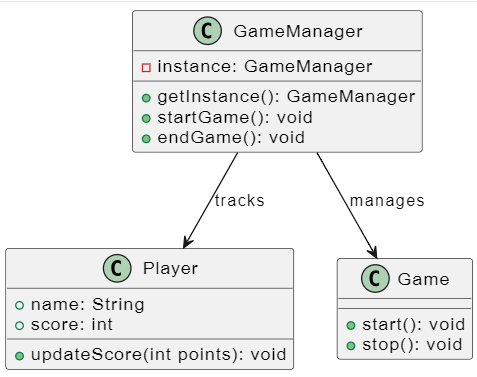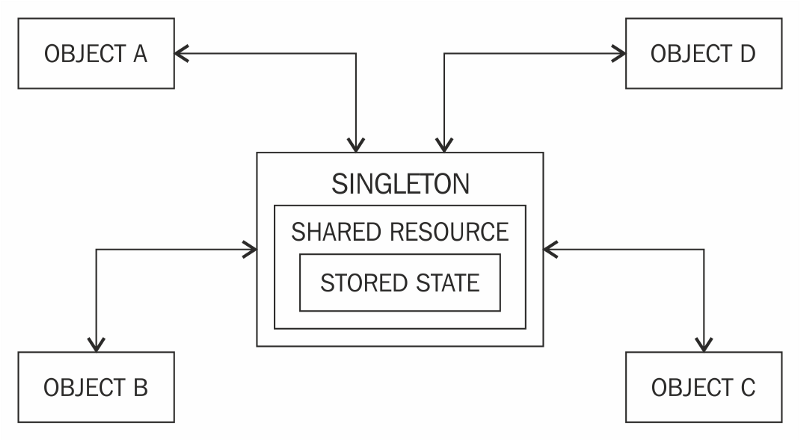Introduction
The Singleton pattern is one of the fundamental design patterns in object-oriented programming, known for ensuring that only a single instance of a class exists throughout the lifecycle of an application. This is crucial in systems that require uniqueness and global resource management. In the context of game development, Singleton is often used to manage global resources, system configurations, or services essential to the entire application. However, using Singleton is not always the optimal choice. This article will analyze the advantages and disadvantages of Singleton and its application in game programming.
Advantages of Singleton
- Uniqueness: Singleton ensures that only a single instance of a class exists in the system, helping to avoid conflicts and errors caused by multiple similar objects coexisting.
- Global Access: Singleton provides a common access point to the object, making it convenient to use in various parts of the application without needing to pass the object through multiple classes or methods.
- Efficient Resource Management: Singleton is suitable for managing system resources such as databases, configuration files, or network services, optimizing resource usage.

Disadvantages of Singleton
- Difficult Testing: Since the Singleton object is global and unique, testing software that uses Singleton becomes challenging, especially when writing independent unit tests.
- Tight Coupling: Singleton creates strong dependencies between different parts of the system, reducing flexibility and code reusability.
- Multithreading Issues: If not carefully designed, Singleton can cause synchronization problems and resource contention in a multithreaded environment.
- Limited Scalability: Changing the behavior of Singleton can affect the entire system, making it difficult to scale or modify features in the future.
Application of Singleton in Game Programming
- Game State Management: Singleton is often used to store information about scores, levels, or other global variables, ensuring data consistency throughout gameplay.
- Resource Management: Singleton helps load and manage assets such as images, sounds, and special effects, saving memory and optimizing performance.
- Input Management: Singleton supports handling user input events, making game controls smoother and more accurate.
- Time Management: Singleton controls the game’s speed and timing effects, ensuring synchronized activities within the game.

Alternative Solutions to Singleton
- Dependency Injection: Injecting dependencies into other classes helps minimize tight coupling between different parts of the system.
- Service Locator: Provides a central mechanism to find and retrieve necessary objects, offering more flexibility in service management.
- Module Pattern: Organizes code into independent modules, reducing global dependencies and increasing reusability.
Conclusion
Singleton is a useful tool in object-oriented programming, particularly in game development, but it should be used with caution. In many cases, alternative solutions like Dependency Injection or Service Locator may offer better outcomes. Choosing the right design pattern depends on the specific requirements of each project. Always carefully evaluate the advantages and disadvantages of Singleton before deciding to apply it in your system.

